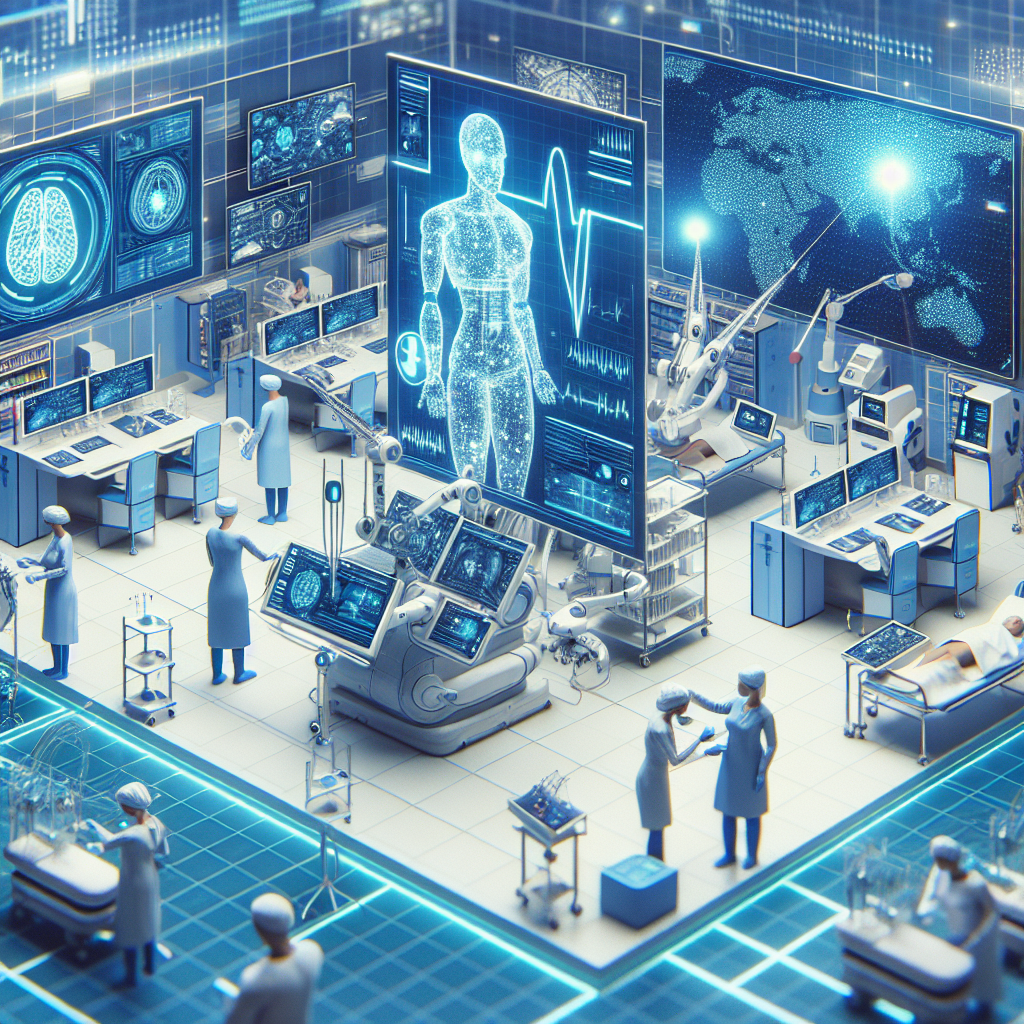AGI in Healthcare: How Superintelligent Machines Could Transform Medicine
Artificial General Intelligence (AGI) has the potential to revolutionize the healthcare industry. AGI refers to machines that can perform any intellectual task that a human can do. In healthcare, this means machines that can diagnose diseases, develop treatment plans, and even perform surgeries with a level of precision and efficiency that surpasses human capabilities. The implications of AGI in healthcare are vast, from improving patient outcomes to reducing costs and increasing access to care. In this article, we will explore how AGI could transform medicine as we know it.
The Potential of AGI in Healthcare
AGI has the potential to transform healthcare in a number of ways. One of the biggest advantages of AGI is its ability to process and analyze vast amounts of data much faster and more accurately than humans. This means that AGI can help doctors make more accurate diagnoses, develop personalized treatment plans, and predict patient outcomes with greater accuracy. This can lead to better patient outcomes and reduced healthcare costs.
AGI can also help address the shortage of healthcare professionals in many parts of the world. By automating routine tasks and assisting healthcare providers in making complex decisions, AGI can help increase the efficiency of healthcare delivery and improve access to care for patients in underserved areas.
Furthermore, AGI can help accelerate medical research and drug development. By analyzing large datasets and identifying patterns that humans may have missed, AGI can help researchers uncover new insights and develop more effective treatments for diseases.
Challenges and Ethical Considerations
While the potential benefits of AGI in healthcare are vast, there are also significant challenges and ethical considerations that must be addressed. One of the biggest challenges is ensuring the accuracy and reliability of AGI systems. As with any technology, there is a risk of errors and biases in the data that AGI systems are trained on, which can lead to incorrect diagnoses and treatment recommendations.
There are also concerns about the impact of AGI on the workforce. While AGI has the potential to improve efficiency and reduce costs, there is a risk that it could also lead to job displacement for healthcare professionals. It will be important to develop policies and regulations that ensure a smooth transition to a healthcare system that incorporates AGI while also protecting jobs and ensuring that patients receive high-quality care.
Another ethical consideration is the issue of data privacy and security. AGI systems rely on large amounts of data to make accurate predictions and recommendations. It will be important to implement robust data protection measures to ensure that patient information is kept secure and confidential.
FAQs
Q: How will AGI impact the role of healthcare professionals?
A: AGI has the potential to automate routine tasks and assist healthcare professionals in making complex decisions. This can help increase the efficiency of healthcare delivery and improve patient outcomes. However, there is also a risk of job displacement for healthcare professionals, which will need to be addressed through policy and regulation.
Q: Will AGI replace doctors and nurses?
A: While AGI has the potential to automate certain tasks that are currently performed by doctors and nurses, it is unlikely to replace them entirely. Instead, AGI is more likely to augment the capabilities of healthcare professionals and help them make more accurate diagnoses and treatment decisions.
Q: How can we ensure the accuracy and reliability of AGI systems in healthcare?
A: Ensuring the accuracy and reliability of AGI systems in healthcare will require robust testing and validation processes, as well as ongoing monitoring and oversight. It will also be important to address issues of bias and data quality in the training data used to develop AGI systems.
Q: What are the ethical considerations of using AGI in healthcare?
A: Ethical considerations of using AGI in healthcare include issues of data privacy and security, job displacement for healthcare professionals, and ensuring that AGI systems are used in a way that maximizes patient benefits while minimizing potential harms.
In conclusion, AGI has the potential to transform healthcare in profound ways, from improving patient outcomes to accelerating medical research and drug development. However, there are also significant challenges and ethical considerations that must be addressed to ensure that AGI is used in a way that benefits patients and society as a whole. By carefully considering these issues and developing policies and regulations that address them, we can harness the power of AGI to revolutionize medicine and improve healthcare for all.

